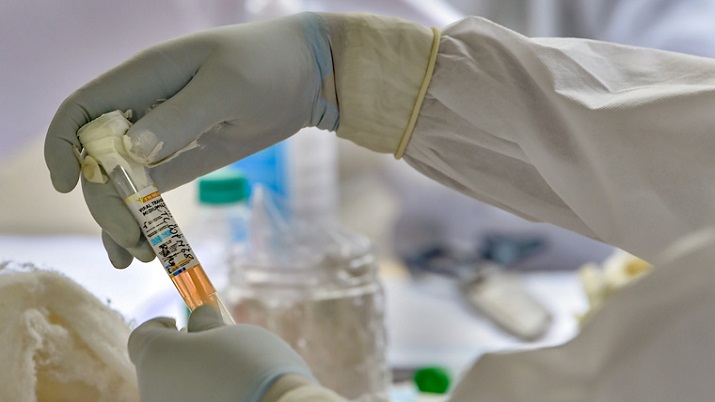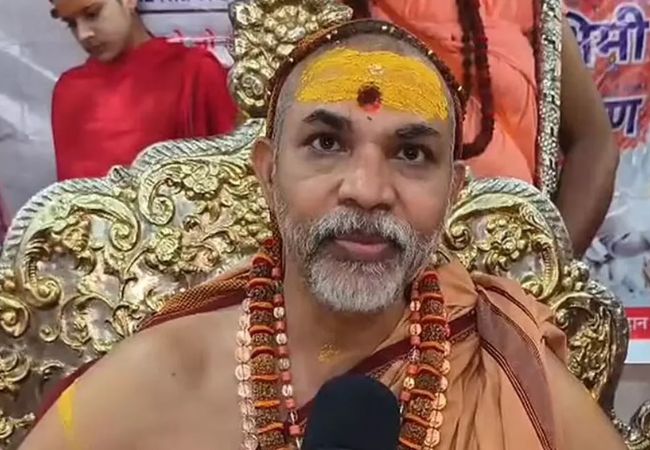Queensland, Feb 3 (The Conversation): Cases of the SARS-CoV-2 variant Omicron have escalated globally over the past two months, with many countries experiencing peaks higher than previous variants.
Now we're seeing cases of a sub-variant of Omicron, known as BA.2, emerge in Australia and more than 50 countries.
Rather than a daughter of the Omicron variant BA.1 (or B.1.1.529), it's more helpful to think of BA.2 as Omicron's sister.
Remind me, what is a variant?
Viruses, and particularly RNA viruses such as SARS-CoV-2, make lots of mistakes when they reproduce. They can't correct these mistakes, so they have a relatively high rate of errors, or mutations, and are constantly evolving.
When the genetic code of a virus changes as a result of these mutations, it's referred to as a variant.
Omicron is a highly divergent variant, having accumulated more than 30 mutations in the spike protein. This has reduced the protection of antibodies from both prior infection and vaccination, and increased transmissibility.
When do health authorities worry about a new variant?
If changes in the genetic code are thought to have the potential to impact properties of the virus that make it more harmful, and there's significant transmission in multiple countries, it will be deemed a variant of interest .
If a variant of interest is then shown to be more infectious, evade protection from vaccination or previous infection, and/or impact the performance of tests or treatments, it is labelled a variant of concern .
The World Health Organisation (WHO) classified Omicron a variant of concern on November 26 because of its potential to cause higher reinfection rates, increased transmissibility and reduced vaccine protection.
What is the Omicron lineage?
A lineage, or sub-variant, is a genetically closely related group of virus variants derived from a common ancestor.
The Omicron variant comprises three sub-lineages: B.1.1.529 or BA.1, BA.2 and BA.3.
While the WHO has not given BA.2 a separate classification, the United Kingdom has labelled BA.2 a variant under investigation . So not yet a variant of interest or concern, based on WHO definitions, but one that is being watched closely.
This is not the first variant to have sub-lineages. Late last year, Delta plus or AY.4.2 was reported widely, then Omicron came along.
What's different about BA.2?
While the first sequences of BA.2 were submitted from the Philippines and we have now seen thousands of cases, including in the United States, the UK and some in Australia its origin is still unknown.
The exact properties of BA.2 are also still being investigated. While there is no evidence so far that it causes more severe disease, scientists do have some specific concerns.
1. It's harder to differentiate
A marker that helped differentiate Omicron (BA.1) from other SARS-CoV-2 variants on PCR tests is the absence of the the S gene, known as S gene target failure . But this is not the case for BA.2.
The inability to detect this lineage in this way has led some to label it the stealth sub-variant .
But it doesn't mean we can't diagnose BA.2 with PCR tests. It just means when someone tests positive for SARS-CoV-2, it will take us a little longer to know which variant is responsible, through genome sequencing. This was the case with previous variants.
2. It may be more infectious
Perhaps most concerning is emerging evidence BA.2 may be more infectious than the original Omicron, BA.1.
A preliminary study from Denmark, where BA.2 has largely replaced BA.1, suggests BA.2 increases unvaccinated people's susceptibility of infection by just over two times when compared to BA.1.
The researchers suggest fully vaccinated people are 2.5 times more susceptible to BA.2 than BA.1, and those who were booster vaccinated are nearly three times more susceptible.
The study examined more than 2,000 primary household cases of BA.2 to determine the number of cases that arose during a seven-day follow up period.
The researchers also estimated the secondary attack rate (basically, the probability infection occurs) to be 29% for households infected with BA.1 versus 39% for those infected with BA.2.
This Danish study is still a preprint, meaning it's yet to be checked by independent scientists, so more research is needed to confirm if BA.2 is truly more infectious than BA.1.
We're likely to see new variants We should expect new variants, sub-variants and lineages to continue to emerge. With such high levels of transmission, the virus has abundant opportunity to reproduce and for errors or mutations to continue to arise.
The way to address this, of course, is to try to slow transmission and reduce the susceptible pool of hosts in which the virus can freely replicate.
Strategies such as social distancing and mask-wearing, as well as increasing vaccination rates globally, will slow the emergence of new variants and lineages. (The Conversation)
Let the Truth be known. If you read VB and like VB, please be a VB Supporter and Help us deliver the Truth to one and all.
Lucknow (PTI): The Uttar Pradesh Congress on Wednesday staged a statewide protest demanding a fair and transparent inquiry into the FIR lodged against Swami Avimukteshwaranand Saraswati and those who filed the complaint against him.
In a statement issued here, the party said memorandums addressed to Prime Minister Narendra Modi were submitted through district magistrates in all districts of the state.
Uttar Pradesh Congress spokesperson Manish Hindvi told PTI that the memorandums were handed over through the district administration in all 75 districts.
In the memorandum, the party alleged that Saraswati and his disciples were "unnecessarily harassed and humiliated" by police on the occasion of Amavasya and were prevented from taking a ritual bath (at the Magh Mela). It further alleged that some disciples were manhandled and taken to a police station.
The memorandum also claimed that an FIR was later registered against Saraswati, his disciple Swami Mukundanand Brahmachari and several unidentified persons in a sexual harassment case. It termed the case a "conspiracy" aimed at tarnishing the seer's reputation.
Citing Articles 25 and 26 of the Constitution, the memorandum stated that these provisions guarantee religious freedom and the right of religious denominations to manage their own affairs.
It described the position of shankaracharya held by Saraswati as "one of the highest spiritual posts in Sanatan tradition" and alleged that the entire episode appeared to have been "orchestrated in a planned manner".
"We request that the background of the persons who got the FIR registered be investigated in a transparent manner by a retired high court judge and strict action be taken against them," the memorandum said.
It also sought a "fair and transparent probe" into the allegations levelled against Saraswati so that the truth could be established.
Earlier, Uttar Pradesh Congress president Ajay Rai had told reporters in Varanasi after meeting Saraswati that the party stood firmly with him.
The Congress said it would continue to press for an impartial inquiry into the entire episode.
On February 21, an FIR was lodged in Prayagraj against Saraswati and his disciple Mukundanand Brahmachari on charges of sexually abusing two persons, including a minor, over the past year at a gurukul and religious congregations, including the recently concluded Magh Mela.
Days after he was booked, Saraswati had said on Monday that he would not oppose his arrest and asserted that the "fabricated story" would be exposed sooner or later.
At a press conference on Wednesday, Saraswati alleged that criminals rule in Uttar Pradesh, level allegations and influence investigations, as he denied having any contact with the two persons for whose alleged sexual abuse he has been booked.



_vb_77.jpeg)
_vb_00.jpeg)
